Table of Contents

Thanks to the advancement of modern technology with stone fabrication, it is possible to make almost anything you want for your kitchen or bathroom countertop. No matter how far you travel or what company you choose, certain names will always stand out for stone countertop material. If you have not guessed by the title, the names we are talking about are marble and quartz.
Quartz and marble countertops have been a popular choice for home renovation since our ancient ancestors were young. Which leads to the question, which stone would be better to install as your countertop? What are the differences between these stones, and do they have any advantages over the other?
In order for you to make the most educated choice, we will break down marble and quartz countertops with their history, pros, and cons.
Marble and Quartz Composition
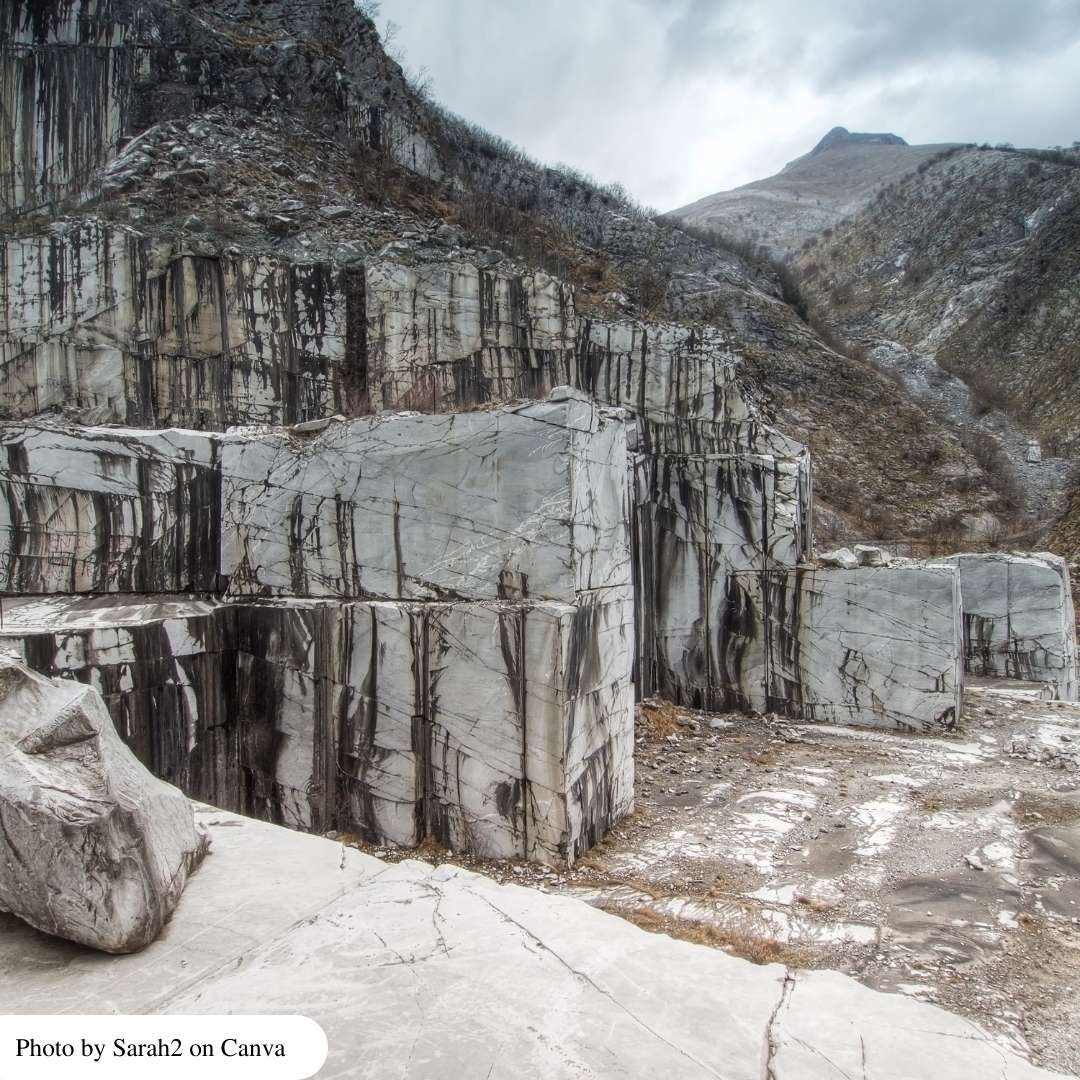
Marble and quartz countertops are technically made from natural stone, but the stone which is classified as marble and quartz are very different.
Marble is a metamorphic rock composed of limestone which was exposed to extreme heat and intense pressure for thousands of years. Calcite forms on the limestone, crystallizing into a denser material which becomes the marble stone.
Quartz is a hard, crystalline mineral composed of silica (silicon dioxide). Quartz is an igneous rock, meaning the rock was formed when magma becomes trapped deep within the Earth and cooled over hundreds or thousands of years.
How Are Marble and Quartz Countertops Formed
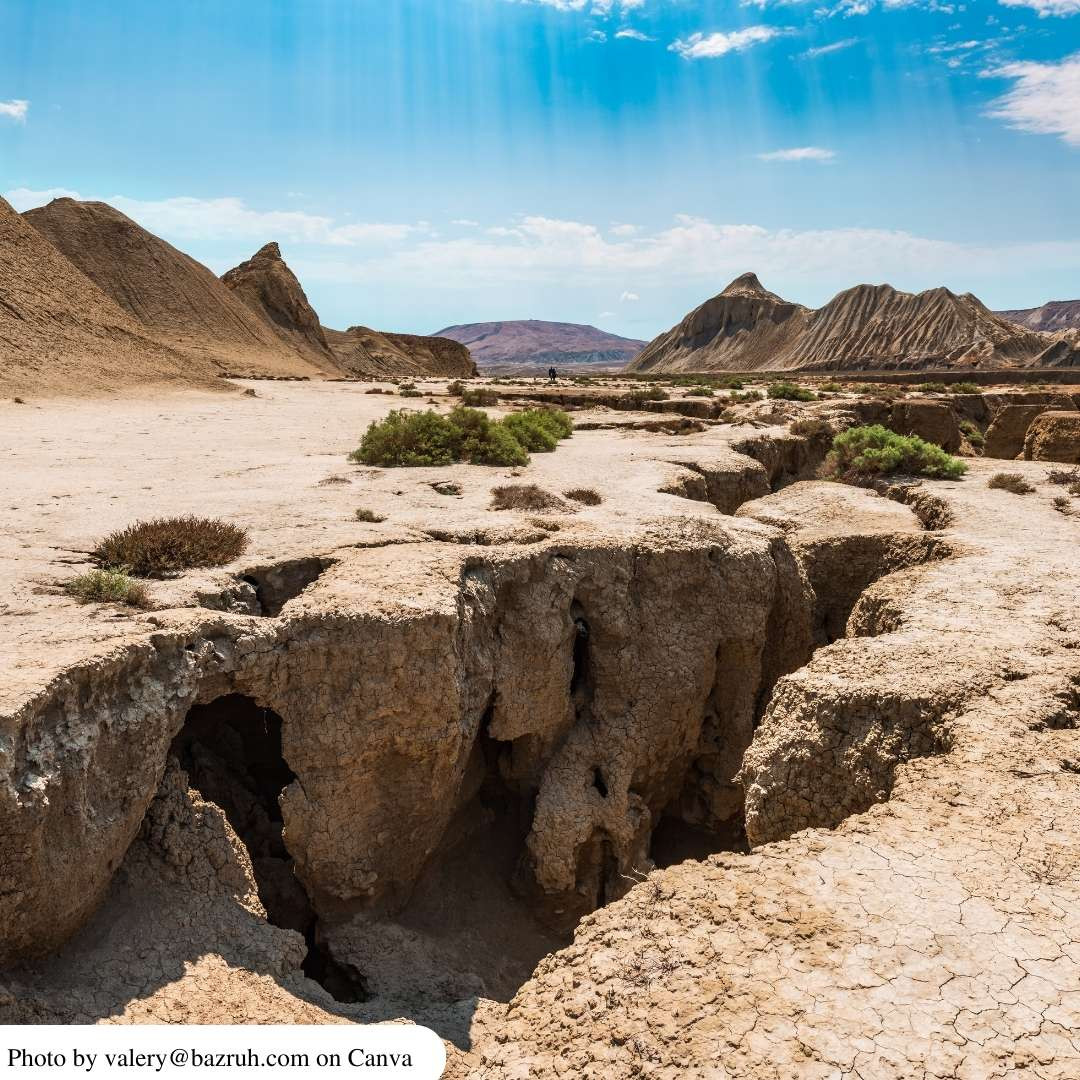
Typically, stone countertops are made from the stone from which they are named. However, quartz is more unique than other stones.
Marble countertops are made from marble stone. Large blocks of marble are quarried from locations around the world, shipped to stone companies and fabricated in a factory to fit the specific countertop for a client.
Quartz countertops are considered “engineered stone,” since they are technically not fully quartz. Quartz slabs are made of 90%-93% of raw quartz mineral which is pressed and glued together with either acrylic, epoxy, or polyester resin. The remaining 7%-10% of the slab will consist of resin so the slab remains in one solid piece. The slab is sealed together and shaped for the client.
When deciding which one is better is a matter of preference here. For homeowners who want a truly raw and natural stone, then marble would be the winner.
Appearance
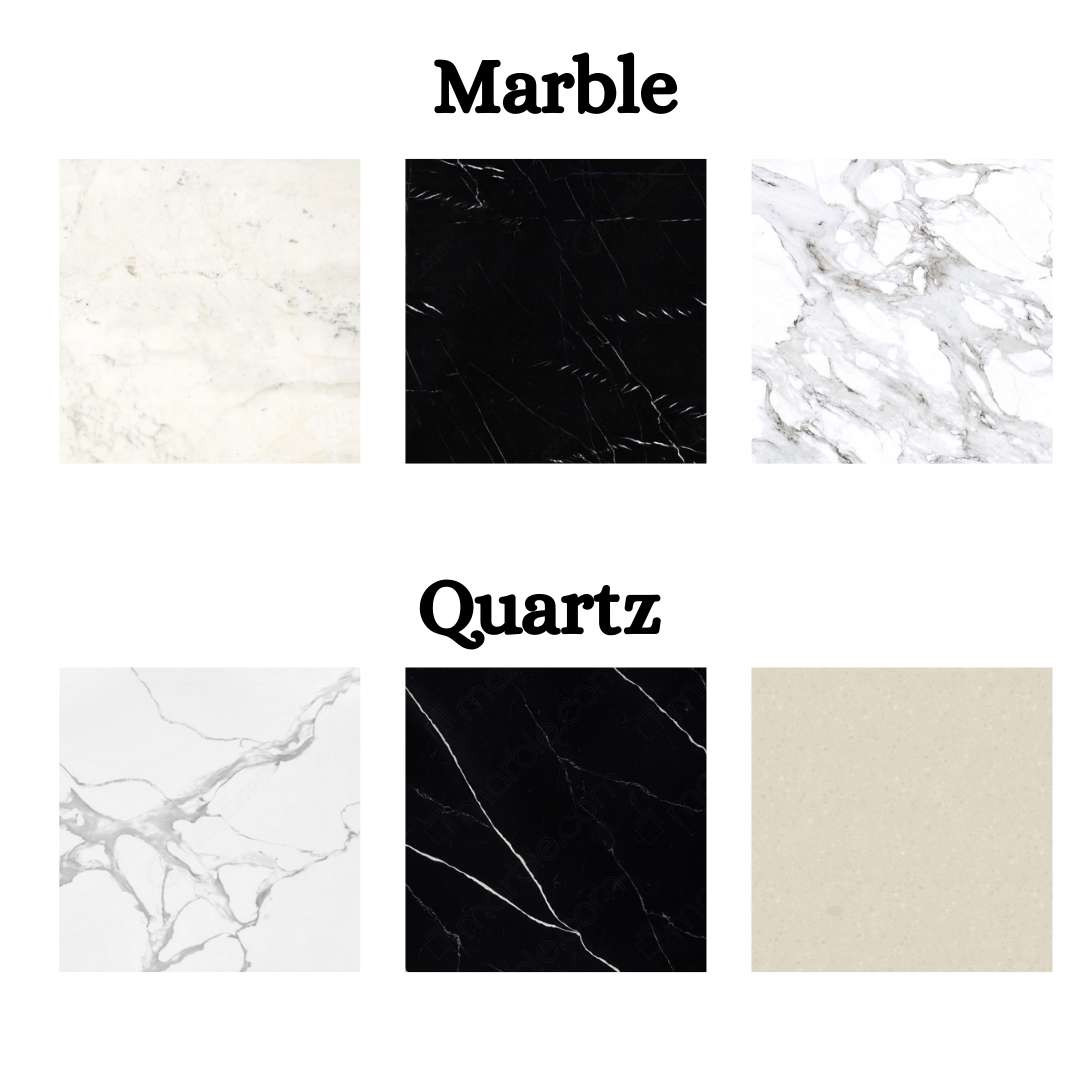
Marble stones have natural veining that run throughout the stone due to moisture escaping from the slab during the cooling process. This makes each piece of marble unique and a natural masterpiece with its own grooves, shapes, designs, and identity.
Quartz is a man-man stone, so the slabs are made from the abundant quartz mineral in quarries. Since quartz is so widespread, it can be easily customized to fit any design in the fabrication process. Modern technology has simplified the process so much that quartz can look like virtually any stone on the market. Quartz fabricators have gotten so good at replicating the look of marble in quartz slabs, some marble experts have difficulty telling the difference.
When it comes to appearance, there is no beating the classic marble look. It has been a home improvement and construction favorite for a reason that it probably cannot be topped. Marble has the best look that some of the best-selling quartz countertops are slabs that are mimicking marble.
Durability & Hardness
While the terms durable and hardness can be synonymous with each other, they actually evaluate different things with stone countertops. Hardness gauges how resistant a stone is from scratching on a 1 to 10 scale. Durability measures how resistant the stone is to cracking or breaking under stress or heavy use.
Marble is known as a soft stone, ranking 4 out of 10 on the Mohs Hardness scale. This low rating translates over to its durability as well where it is capable of handling excessive use, but it could be damaged when overtaxed. Homeowners must exercise caution when using marble as it can be scratched or chipped when too much force is applied.
Quartz is a hardy stone, ranking 7 out of 10 on the Mohs hardness scale. This makes quartz very resistant to scratching and chipping as it is much sturdier than marble and many other stones on the market. That being said, quartz can still be scratched or broken if too much force is applied; but it will take more effort to do so.
By just going off the number, quartz is the stronger and sturdier stone, making it the winner for this category.
Stain Resistance & Porosity
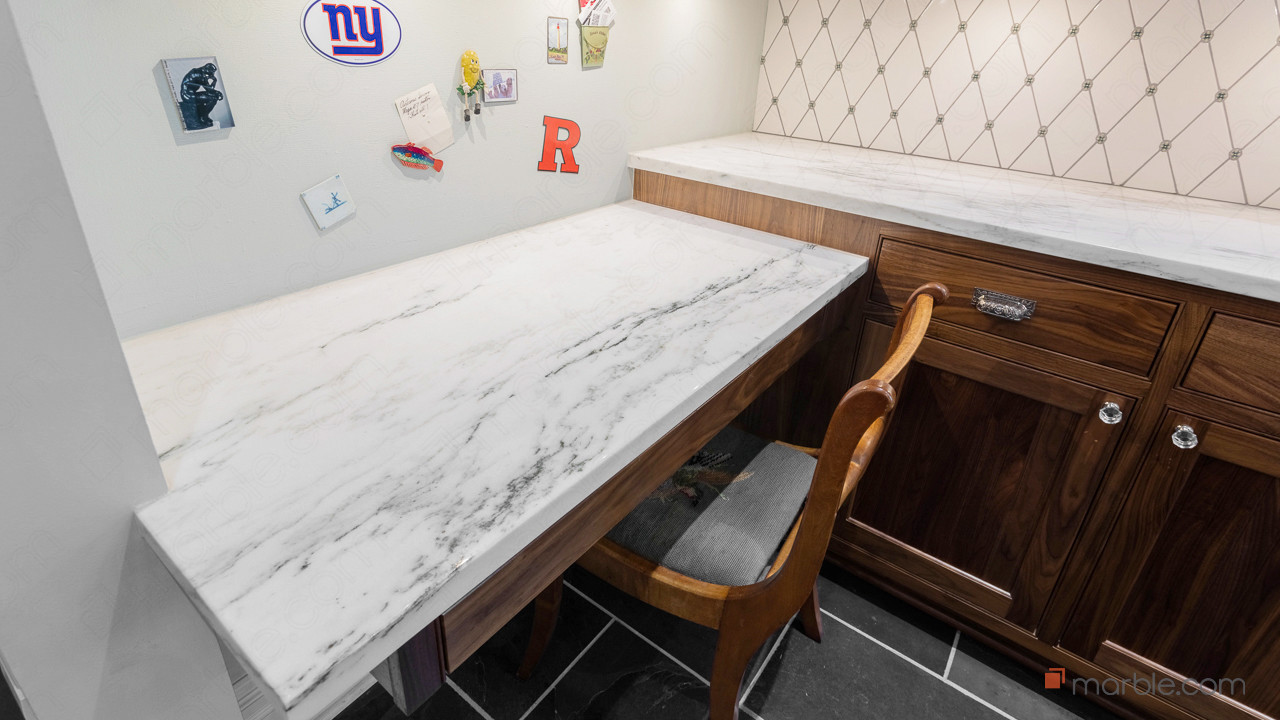
Sad as it is to say, but stains are going to happen in the home. It is almost inevitable, and they will form by accident. Which is why finding a stone that is exceptionally stain resistant is preferable. The best way of doing this is by purchasing a stone slab that has low or no porosity to it. Most natural stones have pores as they are developed when steam escapes the stone during the cooling process over thousands of years. When the stone hardens, the pores harden and become miniscule groves where food matter, liquids, or other material can fall inside and become trapped.
Marble stone is unfortunately very porous. Its beauty and elegant look can be easily tarnished if drinks, paint, ink, or other small scraps become trapped within the stone and form blemishes. The longer the material is left to sit on a marble countertop, the deeper it will sink and harder it will become for it to remove.
Quartz stone have pores as well, but quartz slabs do not. Due to the manufactured process by which quartz slabs are created, quartz countertops are pre-sealed before they are put on the market. This gives quartz countertops more protection from stains as there are no pores for debris to sink into.
Quartz is the clear winner in this category as its layered protection prevents stains from forming while marble has a high risk of developing stains.
Heat Resistance
Kitchens can get very warm with food cooking, cooktops and ovens generating heat, and appliances being placed on the countertop to cool for serving. Having a countertop capable of staying cool under when stressed with elevated temperatures is a key advantage to possess.
Marble is a metamorphic rock, meaning it was developed deep within the Earth with hot magma and pressure over time. This makes marble exceptionally skilled at maintaining its composure with high temperatures as it was made with some of the hottest temperatures on the planet for thousands of years.
Quartz is equally skilled at staying cool in hot temperatures because it was also made in the Earth’s crust surrounded by hot magma. However, while the quartz stone is heat resistant, the resin binding the quartz together is not. Quartz countertops can handle active kitchen use, but caution should be taken not to place hot metals directly on the slab as they can damage the resin, weakening the slab over time or cause thermal shock which can damage the stone.
Both stones are equally capable of handling hot temperatures, and both can be damaged by thermal shock if hot metals are placed directly on the stone. While the resin with quartz is vulnerable to elevated temperatures, the chances of it actually becoming a problem are minimal since it will take something hotter than anything a regulated kitchen can produce. For this case, it’s a draw.
Ease of Maintenance
The best countertops are the ones that are easy to clean without much fuss or special instructions. The easier it is to clean, the less work you have to worry about staining or etching with the stone.
Marble stone is very delicate where extra caution needs to be taken when tending to it. This involves having it sealed every 6 months to ensure the pores are filled, using specific marble countertop cleaners, using very soft brushes to keep it safe, filling in scratches or dents with color-matching epoxy or resin. Depending on possible damage or the stain, marble may need to be completely removed. For those wanting to know more, view our article on how to clean marble countertops.
Quartz countertops are much easier to clean as they come pre-sealed from the fabricator and do not need to be resealed after purchase. Quartz slabs will require softer cleaning agents to remove dirt and grime, but it will not stain as much as marble, making it much easier to tend to. Feel free to view our tips on how to keep quartz countertops clean.
Quartz is the clear winner as the stronger composition, sealed surface, and easy maintenance allows homeowners to perverse its health and shine for a long time.
[get_quote]
Accessibility
Homeowners are demanding more natural stones on the market so that many stones are getting harder to find. Finding a supplier with the stone you are looking for may be a challenge depending on where you live and what you want.
Marble is a highly coveted stone due to its long use throughout history. Marble’s reputation is steeped in high society and luxury, which owning a marble countertop often becomes a symbol that you have wealth and have status. Unfortunately, that also means marble can be difficult to obtain since everyone wants it. The most sought-after marble slabs like Carrara and Calacatta are only quarried in Italy, making them even rarer to obtain.
Quartz is engineered to mimic stone on the market, making it an excellent alternative option when marble is not available to purchase. Quartz slabs are much easier to obtain; typically there is plenty in stock where even if the specific look you want is not available, there are other slabs to be purchased. Quartz is also one of the most abundant minerals on Earth, meaning there are more quartz quarries around the world.
Quartz once again wins this category as it can be found much more reliably than marble, which can waver since it is quarried in only a few locations.
Cost

Last but not least, the most crucial element in buying a stone countertop is the price. How much will marble or quartz cost? Stone countertops are charged per square foot (psf) being installed. Keep in mind, there are multiple factors involved with the pricing of stone countertops. For more information, read our article on estimating the cost of stone countertops.
Marble countertops can cost anywhere from $40-$100 psf.
Quartz countertops can cost anywhere from $50-$120 psf.
Quartz and marble are basically comparable to each other with pricing. Quartz may have some slabs that are cheaper to obtain, but marble is a pristine stone, and you are often buying the brand name and history of marble. This one is a toss-up depending on what stone you are looking for and proper budgeting.
Final Tally
|
Category |
Marble Countertops |
Quartz Countertops |
Winner |
|
Composition |
Metamorphic rock from limestone |
Crystalline silica |
X |
|
Formation |
Stone slab of marble |
90-93% quartz mineral |
Marble more natural |
|
Appearance |
Plain slab with veining Each slab is unique |
Can mimic any stone style |
Draw |
|
Durability |
Soft |
Strong Resistant to damage |
Quartz |
|
Hardness |
Soft 4 / 10 on Mohs Scale |
Hard 7 / 10 on Mohs Scale |
Quartz |
|
Stain Resistance |
Stains easily and deep |
Stain resistant with surface level issue |
Quartz |
|
Porosity |
Very porous |
No pores |
Quartz |
|
Sealing Required |
Yes Reseal every 6 months |
No |
Quartz |
|
Heat Resistance |
High heat resistance |
High heat resistance Caution with resin |
Draw |
|
Cleanliness |
Specific cleaners needed Resealing needed Possible replacement if too damaged |
Gentle cleaners only No releasing Can be fixed |
Quartz |
|
Accessibility |
Difficult to obtain Few quarries worldwide |
Most abundant stone on Earth Many quarries worldwide |
Quartz |
|
Cost Per Square Foot |
$40-100 |
$50-$120 |
X |
Final Result
On the surface, quartz countertops may seem like a better option, but better is always subjective when it comes to home design. Marble has been a popular stone for generations because it is highly coveted. Quartz is becoming more popular as an alternative to marble and valued just as highly for its durability and customization. What is better is always what you want as a homeowner. Whether you want marble, quartz, granite, or anything else, as long as it is what you want, then it will always be the best choice.













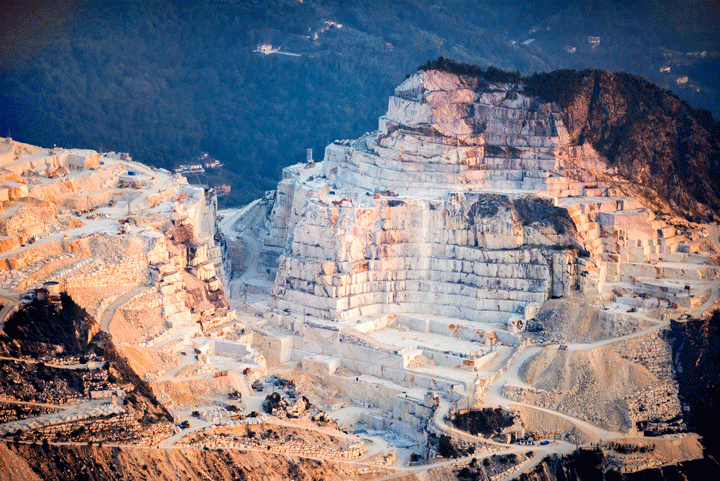
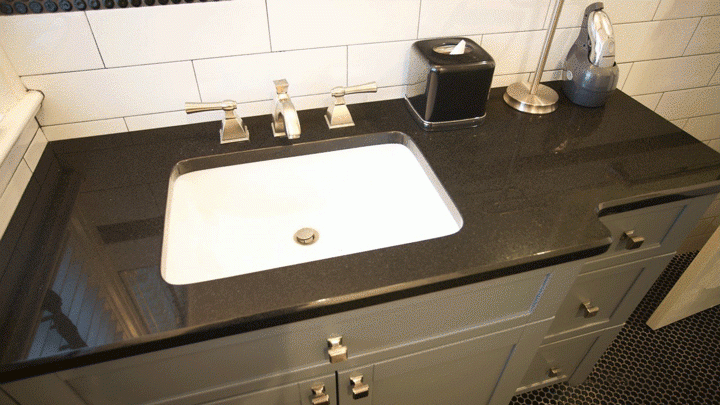
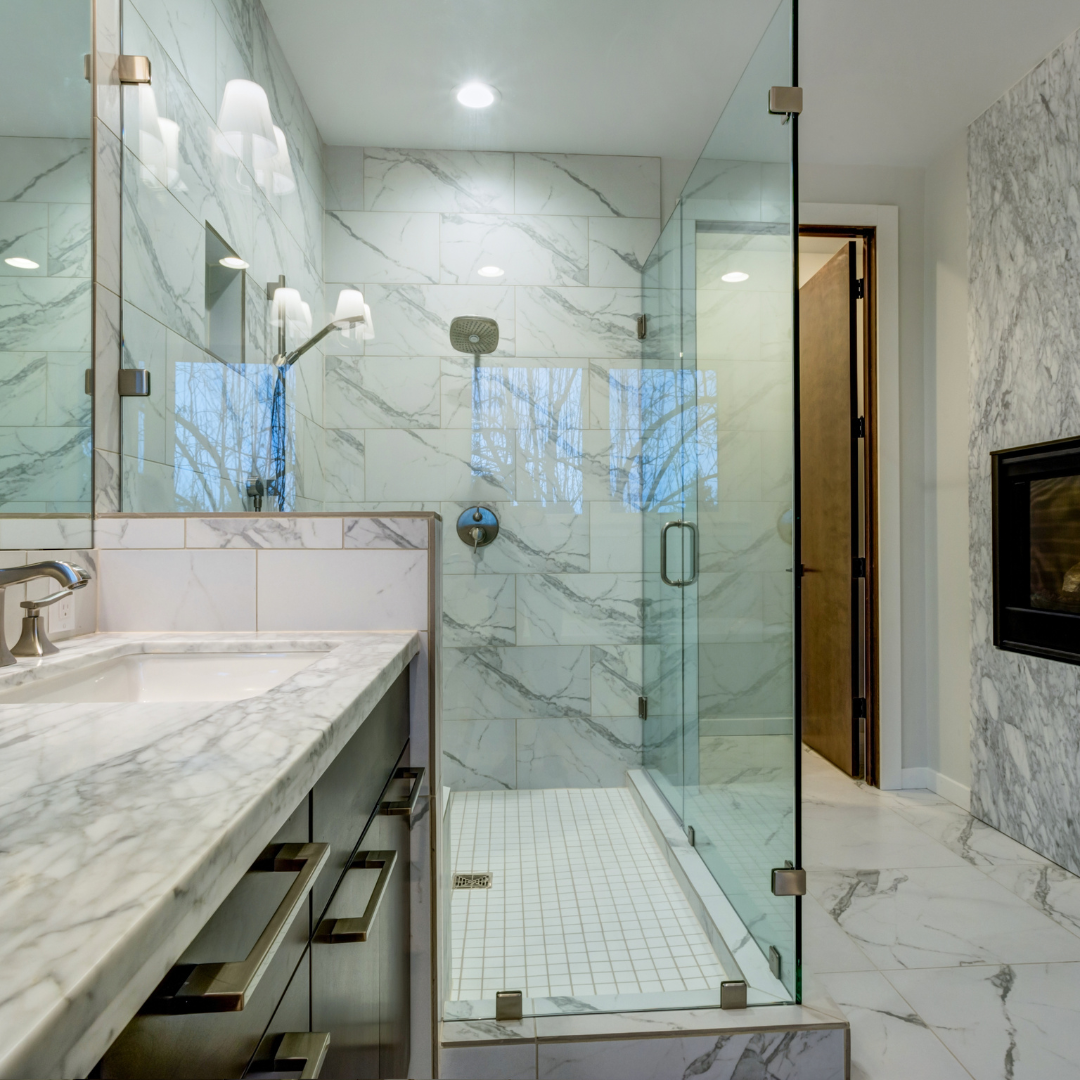
 The article helped me immensely
The article helped me immensely
 I’m now more informed on the subject
I’m now more informed on the subject
 I have questions about Marble.com
I have questions about Marble.com
 The article was not accurate at all
The article was not accurate at all
 There is a serious lack of information
There is a serious lack of information
 I have questions about Marble.com
I have questions about Marble.com